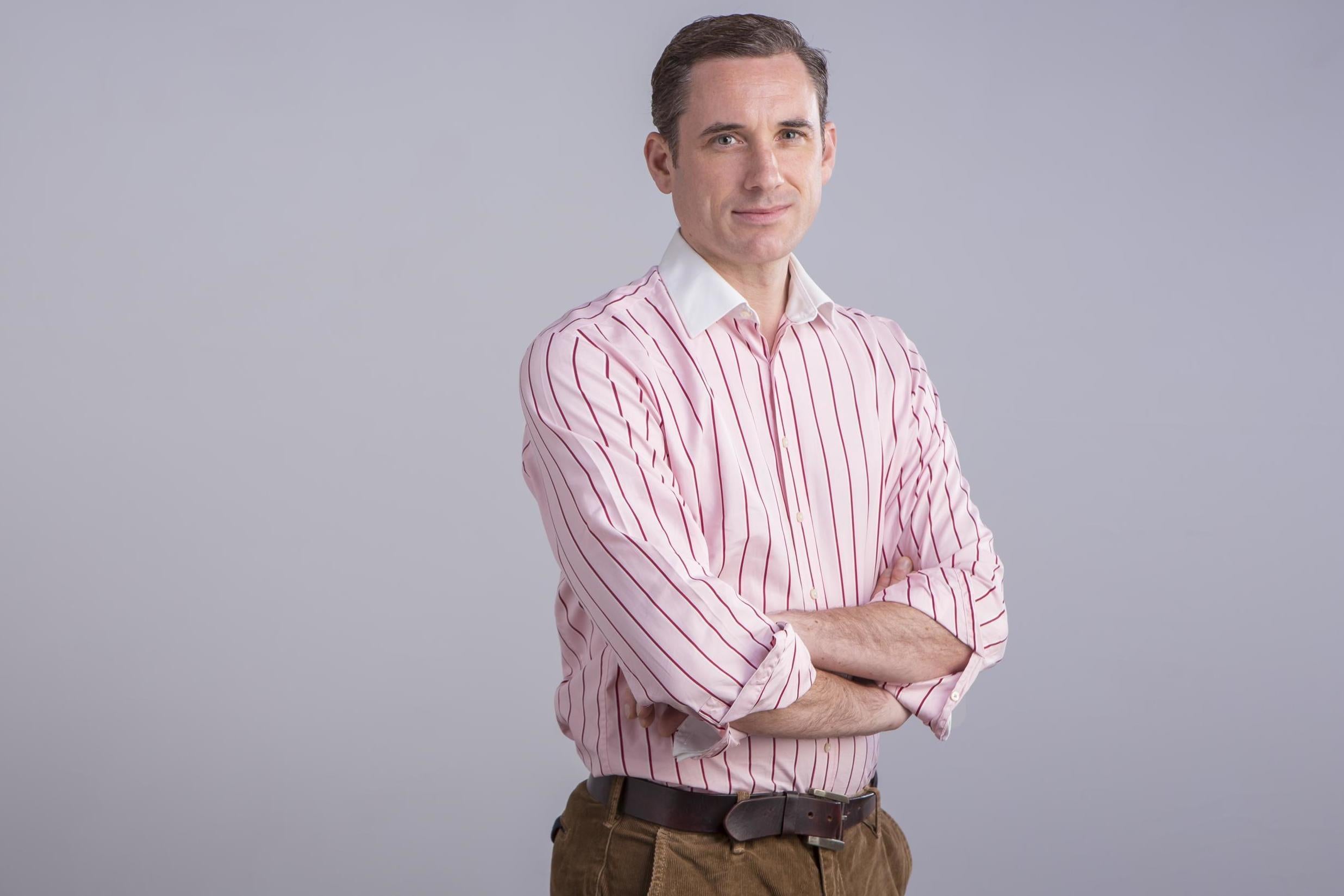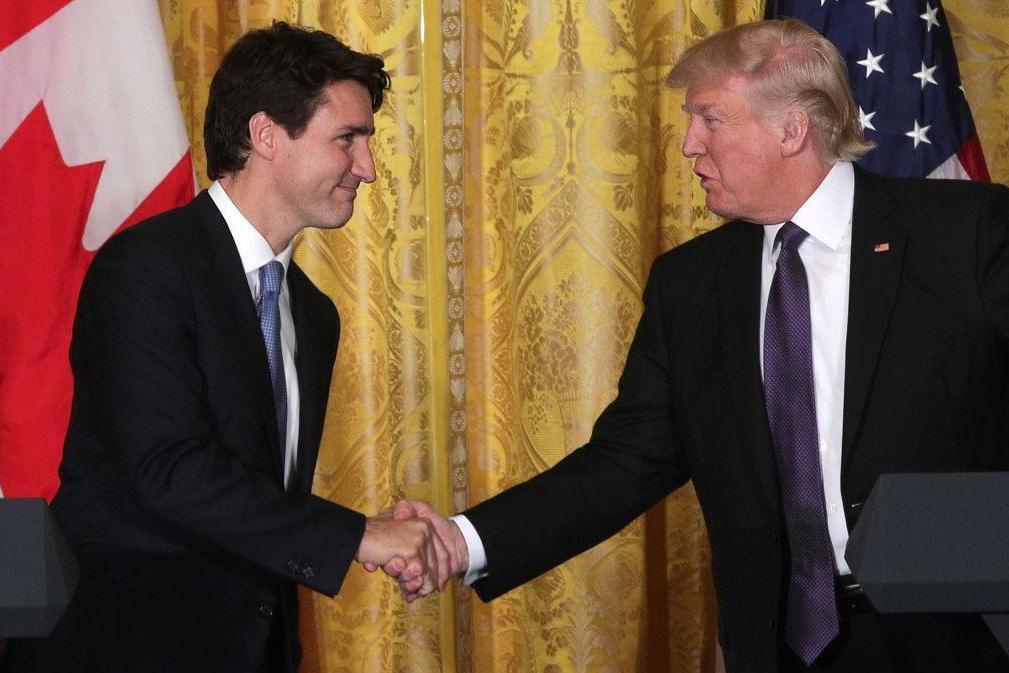Can you learn how to become more charismatic in business? I met the handshake guru who says you can
Richard Reid began his career as a business consultant, before qualifying as a trauma and cognitive behavioural therapist. Now he makes people more charismatic

Your support helps us to tell the story
From reproductive rights to climate change to Big Tech, The Independent is on the ground when the story is developing. Whether it's investigating the financials of Elon Musk's pro-Trump PAC or producing our latest documentary, 'The A Word', which shines a light on the American women fighting for reproductive rights, we know how important it is to parse out the facts from the messaging.
At such a critical moment in US history, we need reporters on the ground. Your donation allows us to keep sending journalists to speak to both sides of the story.
The Independent is trusted by Americans across the entire political spectrum. And unlike many other quality news outlets, we choose not to lock Americans out of our reporting and analysis with paywalls. We believe quality journalism should be available to everyone, paid for by those who can afford it.
Your support makes all the difference.My charisma guru leans towards me. He proffers his hand and bares his teeth through a wide, orange-slice grin.
I’ve always known I have a pitiful handshake. It has the stench of low self-esteem: the touch of a dead fish. But Richard Reid is here to change that. Richard Reid is here to make me charismatic. Good luck to him.
Reid has moulded the minds of better men than me. Having begun his career as a business consultant, he evolved first into a counsellor then a trauma and cognitive behavioural therapist. He has advised Google, Morgan Stanley, the BBC and the City of London Police.
Now he makes people more charismatic. Suspend your scepticism momentarily.
He says he does so by helping people feel less self-conscious, control fear and conquer reptiles.
There are three parts to the brain, Reid explains. The reptilian, the mammalian and the human brain. The reptilian brain governs our base survival instincts. When fear kicks in, it hijacks our human brain, the part that has evolved over millions of years to deal with smalltalk, canapés and computers, and turns us all into tongue-tied teenagers.
Reid liberates us from our lizard captors through mindfulness. By channelling our thoughts onto the present and ridding us of external distractions, mindfulness slows thought processes and helps the human brain take control. Supposedly.
Reid takes me through some simple breathing exercises, then asks me to think of a happy memory from a recent holiday. My heart rate slows, my reptile recedes. But what has this all got to do with charisma?
“I’ve done a lot of work with people suffering from post-traumatic stress disorder,” says Reid. “In those instances, people are held back from living their lives fully because they are imprisoned by that trauma. Training charisma by releasing people from self-consciousness and low self-esteem is not dissimilar.”
Business people, in particular, have become somewhat of a speciality for Reid. The most common issue he deals with is “imposter syndrome”, a psychological concept spawned in the late seventies that describes high-achievers who feel they are undeserving.
“This happens a lot with people who are moving into a senior role,” explains Reid. “They have received accolades and recognition but they don’t connect with that side of their personality; they are governed by fear.
“Often they have got a promotion ahead of someone else who they think more qualified than themselves. In other instances they may have been promoted because of their technical skills but their new role suddenly means they have to influence people, something they are not used to.”
Reid says that although education is traditionally geared towards developing technical skills and IQ, it is actually EQ – which measures emotional intelligence – that is more important in most circles. So if EQ can be taught and trained in the same way learning maths and English develops IQ, as Reid believes, why are we not teaching charisma classes in schools?
“This is changing, particularly in business courses,” says Reid. “I have done work with various graduate induction programmes and business school curriculums. There is an opportunity to normalise it.”
Richard Branson is one man who has learnt to be charismatic, says Reid. “You can tell it doesn’t come naturally to him. He’s had good PR, and a lot of practice.”
He says Barack Obama is naturally charismatic. But what about Trump?
“No. It’s important to make a distinction between charm and charisma,” he says. “We use charm to get something out of someone. It’s short-term – and one-way. Charisma helps to build sustainable relationships. You want the other person to feel as important as you, and likewise you should feel as important as them.”
So Trump is charming, not charismatic and it all boils down to the simple handshake. Significant column inches have been dedicated to the grab-and-pull, where the US President hauls his adversary’s hand towards him before wringing it dry. It is not a handshake of equals, says Reid.
Charisma is putting your company at ease. Trump’s technique activates their reptilian brains by triggering fear; the fear that they are about to have their arm yanked from its socket.

His assessment of my own method is bittersweet. It’s nothing like Trump’s, but it’s still no bloody good. My limp grip is just for starters, he says. I look at his hand, not his eyes, which implies awkwardness. I lean away, which shows fear. And my angle is crooked, which is just weird.
Take two. My hand stiffens. The fish becomes frozen, but it’s still a fish; cold and slippery. Everything else is as you were.
We repeat ad nauseam.
“Come in slower. Show that you’re in control of the situation,” Reid tells me.
I manage that, but little else.
For whatever reason I just can’t hack it. After about the fifth attempt, I give up. By this point I know he knows it’s a sham. That however hard I grip his hand, however long I stare into his eyes, it’s all an act.
Which begs the question: why bother training better body language if it’s just to hide the turmoil within?
Reid’s masterclass has taught me that charisma is a by-product of a balanced ego. The right mix of self-esteem and humility. It seems to me that while it can be “taught”, that’s only possible indirectly. Reid might be distinct in branding his sessions as ‘charisma classes’, but I am struggling to work out what is unique about their content.
The tripartite brain is not a new theory. Mindfulness is rooted in Buddhism. Building self-confidence is a basic part of any kind of therapy. And at £250 an hour, it doesn’t come cheap.
“Some people might say it’s gimmicky and I suppose part of me is embarrassed by it,” admits Reid. “But if it engages people and makes them curious, then I’d say that’s no bad thing.”
As he shows me to the door, we shake hands one last time.
“Better,” he says. He is being kind. He wants me to feel good about myself. Because he is just so darn charismatic. Bastard.
Join our commenting forum
Join thought-provoking conversations, follow other Independent readers and see their replies
Comments